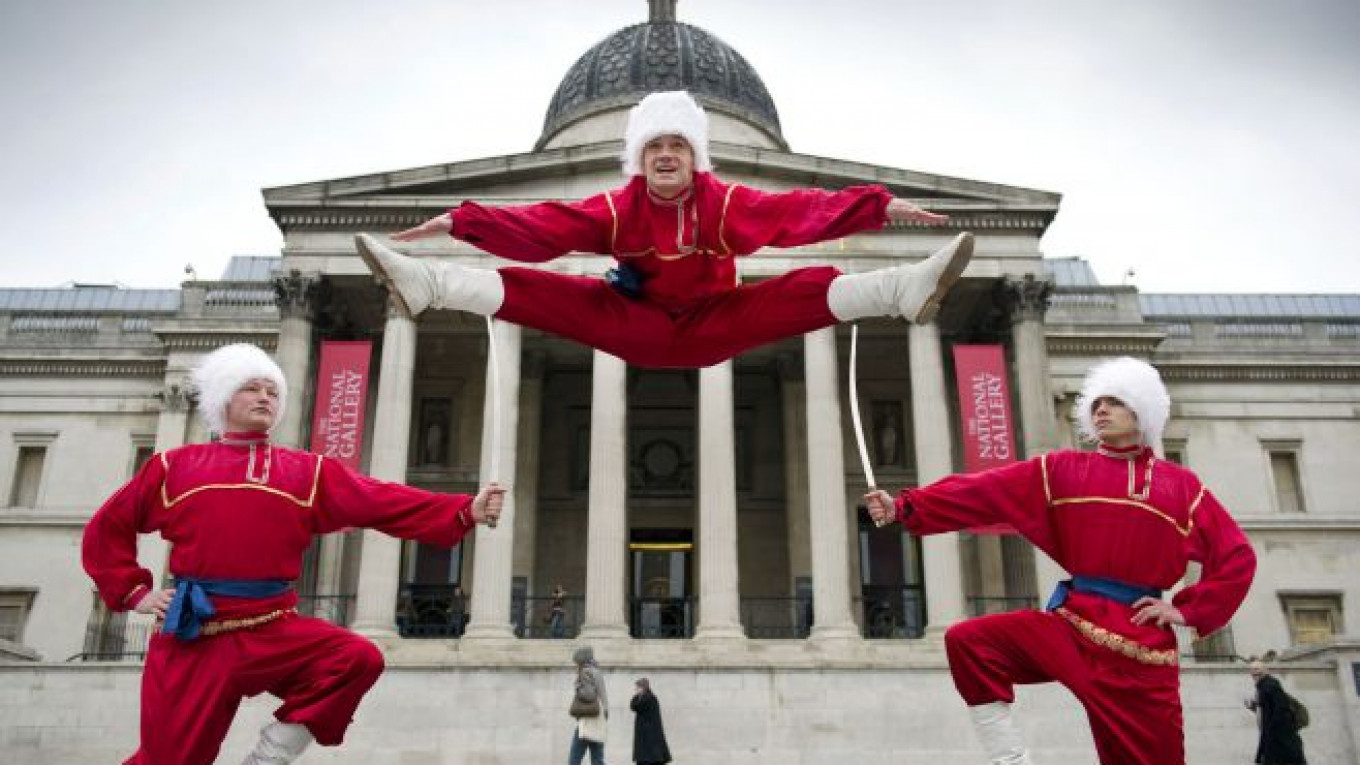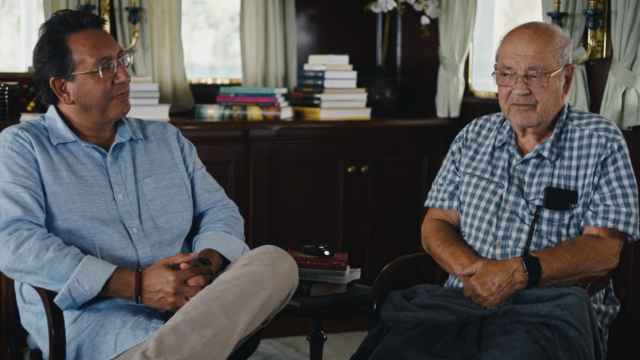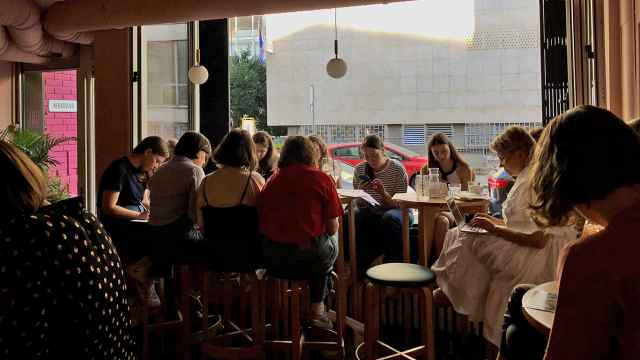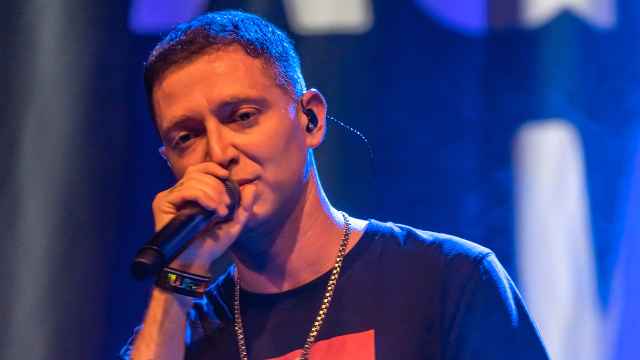Before the collapse of communism, Russian tourism to Britain usually meant Communist Party officials making a pilgrimage to the tomb of Karl Marx in Highgate Cemetery. In 2012, there were 227,000 visits from Russia to Britain, with Russian tourists in large numbers far more likely to be seen having their photo taken near the Yury Gagarin statue at the Royal Observatory in Greenwich.
The allure of Britain as a travel destination for Russian tourists has increased over the years for several reasons. The expansion of budget airlines such as easyJet. The digital revolution means you go very global very quickly now, so the globalized success of British cultural exports means visiting Russian tourists are likely to want a trip to Highclare Castle — the location of "Downton Abbey" — a tour around Stamford Bridge, or a day in Leavesden for the Harry Potter Studio Tour. And the growth of the cafe and restaurant culture over the past two decades means that not only does Britain have more internationally renowned chefs than France — think Jamie Oliver, Nigella Lawson, Gordon Ramsey — but in the 2013 "The Restaurant" survey of the world's best restaurants, London's Dinner by Heston Blumenthal, rated at No. 7, was placed higher than any French one.
VisitBritain — the authority responsible for promoting British tourism worldwide — runs an annual trade mission to Russia. 2014's took place from Feb. 23 to 26. According to VisitBritain, in 2012 Russian visits to Britain were worth £240 million ($402.2 million), equalling a £1,057 average spend per visit, almost double the overall market average of £600 per visit. There has been a 64 percent rise in Russian visitor numbers to the U.K. from 2009 to 2012. The U.K. also attracts more than 10 times the number of visitors from Russia than attracted by either Canada or Australia.
What brings Russians to Britain? Leisure, business and visiting friends and family.
Conducted each year since 2005, the Anholt-GfK Nation Brands Index measures the global image of 50 different nations. In the 2013 study 20,445 interviews were conducted in 20 developed and developing countries with adults.
Topping the "dream activities" to do in Britain chosen by Russians, according to the index, were: 1. Visit Buckingham Palace, 2. Visit 16th century historic Chatsworth House & gardens, 3. Spot wildlife in the Scottish Highlands.
The index displayed that Russians have a generally positive image of Britain, it being ranked 4th overall among the 50 surveyed countries. Russians also ranked Britain 4th for "Vibrant city," 5th for "People," 6th for "Historic Buildings" and 6th for "Contemporary Culture." It is also an aspirational destination for Russians — ranked 6th out of the 50 countries as a place to visit "if money were no object."
Since last year, Britain's northwest — notably Manchester and Liverpool — has been promoting itself as a destination for Russian tourists, particularly with the launch of easyJet's Moscow-Manchester route in March 2013, the first of its kind to the area. This now gives Russians direct access to such attractions as Old Trafford, the Lake District and Liverpool's Beatles Story attraction, featuring the interactive Fab4D Experience. The budget airline also operates flights to Gatwick. Three British airports — Heathrow, Gatwick and Manchester — have direct routes to Moscow and St. Petersburg.
The U.K.-Russia Year of Culture may well increase these numbers of Russian travelers decamping on British soil throughout 2014. Among Russian exports to Britain they can enjoy as part of the cultural exchange are the Sretensky Monastery Choir at Kensington Palace on March 1, the first major Malevich retrospective for almost 25 years at Tate Modern in October and, the same month, an exhibition on the Russian space programme at the Science Museum. The yearly Maslenitsa celebration on London's Trafalgar Square has further increased awareness of Russian culture in Britain and brought Russian performers to the capital.
Anglophile Russians might be drawn by a number of 2014-specific events. Shakespeare's 450th anniversary will be marked with a production of "Hamlet" at London's Globe Theater. The Tour de France starts in Yorkshire on July 5 before heading to Cambridge, then finishing on the Mall in London. There is the Commonwealth Games and Ryder Cup in Scotland. Those wishing to indulge in eccentric humour with be disappointed to learn the Monty Python reunion at the O2 Arena in Greenwich this July has long since sold-out.
And taking place when the summer draws to a close with the August Bank Holiday weekend is the Notting Hill Carnival — the British equivalent of the Rio Carnival, though without the beautiful weather. It brings a splash of Caribbean sunshine, reggae music, jerk chicken, steel bands and colourful costumes to the streets of West London.
Many of these events may be carried out in the pouring rain. Rain is a quintessential part of the tourist experience — except at Wimbledon, where the sight of rain-soaked canvas spread across centre-court is now as much a thing of the past as analogue television and smoking in British pubs. Centre Court now has a roof.
Contact the author at artsreporter@imedia.ru
A Message from The Moscow Times:
Dear readers,
We are facing unprecedented challenges. Russia's Prosecutor General's Office has designated The Moscow Times as an "undesirable" organization, criminalizing our work and putting our staff at risk of prosecution. This follows our earlier unjust labeling as a "foreign agent."
These actions are direct attempts to silence independent journalism in Russia. The authorities claim our work "discredits the decisions of the Russian leadership." We see things differently: we strive to provide accurate, unbiased reporting on Russia.
We, the journalists of The Moscow Times, refuse to be silenced. But to continue our work, we need your help.
Your support, no matter how small, makes a world of difference. If you can, please support us monthly starting from just $2. It's quick to set up, and every contribution makes a significant impact.
By supporting The Moscow Times, you're defending open, independent journalism in the face of repression. Thank you for standing with us.
Remind me later.






